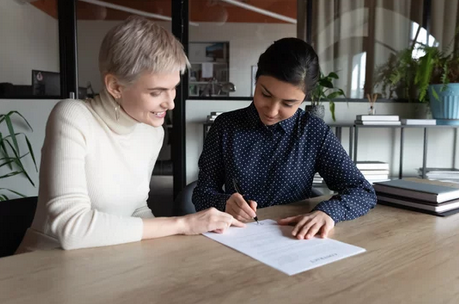Inskip & Davie Buying Guide

Buying a property can be an incredibly exciting time. However, as it is such a big commitment, it is best to understand the process fully, to ensure you are prepared.
What do I need to consider when buying a property?
Finances and Affordability
Firstly, you need to clarify your expense buying a property. It can be misleading to just consider the cost of the deposit being placed, but buying property entails other disbursements.
Buyers face the legal costs, the expense of a survey of the property (always advisable) and other fees, such as Stamp Duty. Be aware Stamp Duty varies depending on the price of the property, whether you’re a first-time buyer and the purpose of the purchase (homeowner or buy to let, for example). There are Stamp Duty calculators online that are easy to use.
If you’re buying with a mortgage, then it is very imperative to hold an ‘Agreement/Decision in Principle’ provided by your preferred lender. When you place an offer on a property, you’ll also need to provide proof of an agreement for a Mortgage. If you are purchasing with cash, you will need to provide proof of funds.
We would always recommend setting out your budget at the beginning of your property search, which considers all the costs involved. This will ensure that you don’t underestimate the expense required or overestimate the funds you must put towards the cost of the property itself.

The Property Search
Once you have an idea of the costs involved and your budget, it’s a good idea to add your preferences to the main property sites, such as Rightmove and Zoopla. Inskip & Davie feature extensively on both. Once you do so, you’ll receive fast notifications when suitable properties become available.
Viewings
When you see a property advertised that you want to view, the next step is to contact the selling agent. It’s best to arrange a viewing appointment as soon as possible, good properties can go very quickly in any market. The early bird catches the worm!
With Inskip & Davie, all viewings are accompanied, to enable quicker and easier access. If you’re travelling from a distance, it’s advisable to arrange the viewing beforehand rather than planning any once you arrive.
Similarly, if you have a particular criterion, such as a large garden or being close to certain amenities, it’s best to discuss this with the estate agent before you plan any viewings. That way, you protect you and an agent from wasting valuable time viewing unsuitable properties.
The Offer Stage
Once you’ve viewed a property you want to buy, the next step is to make an offer. When making an offer on a property, it’s important to keep your budget in mind during the negotiation stage. You should also ensure you find out whether any fixtures and fittings will be included as part of the sale, as this will affect your budget for furnishing the property. If there are fixtures and fittings that you would prefer to be left for you as part of the purchase, then you may need to negotiate for this during the offer stage or pay an additional sum for items.
You should also consider the timescale of the purchase. This is important. Just like you, the seller may also have a time-sensitive sale. Also ask in advance what the upward chain may be, ideally the best scenario is the property is chain free.
If you are selling an existing property in order to buy your next, it is standard practice for the estate agent marketing the property you are interesting in, to call your estate agent to ‘check the chain details’. In other words, to see where the entire process of selling your property is at that point in time. Once you agree a purchase, you will need to provide proof of funds and allow the estate agent to check your identity and address.

Instructing a Solicitor
Now a sale is agreed, you will need to instruct a solicitor to act on your behalf. Inskip & Davie have recommended local solicitors if required. If you’re getting a mortgage to facilitate the purchase, then your solicitor will also have to report to your chosen lender too.
The solicitor will normally send you their terms of business for you to sign. At this stage, it’s likely that they will request an initial payment to be made to cover the costs of local searches. It’s important to return the terms of business to your solicitor and pay for the local searches as soon as possible, as they won’t be able to begin the property exchange process until these necessary steps have been taken.
What is the Difference Between Exchange and Completion?
Exchange and completion are terms often confused. In short, exchange takes place when contracts have been signed by both parties. Completion is the date on which you move into your new property.
Once your solicitor has carried out their checks on the property and received satisfactory replies to enquiries, they’ll ask you to come in to sign the contract or send it to you via post to sign and return.
At this stage, if you’re unsure of anything, then your solicitor can make further enquiries on your behalf. Once you’re happy with the contract they’ll ask you for a deposit (normally 5% – 10% of the purchase price, assuming you have a mortgage) to enable them to exchange contracts.
Once contracts are exchanged, the transaction becomes legally binding, and the completion date is set.
If you need any further support or guidance with any stage of your property journey, please get in touch with either Daniel Davie or Ryan Inskip today.
